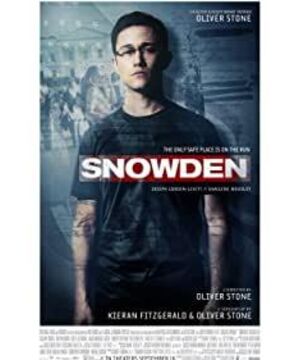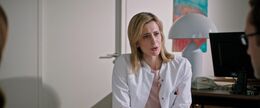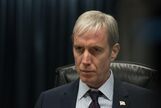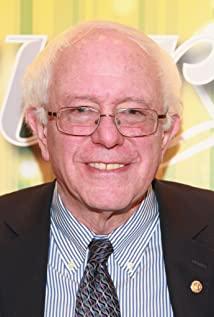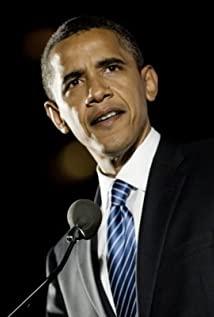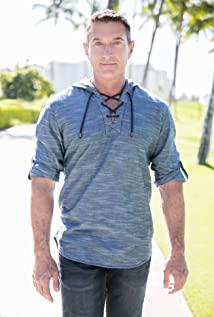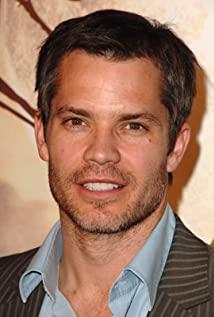I
watched the 2016 movie "Snowden". The biggest feeling is how important it is to give more complete protection to freedom of speech (and more specifically freedom of the press) as a higher level of freedom. When public power has fully invaded the public domain, a single agent or a few reporters can detonate the world with the information in their hands. It is not too late to fix the situation. The news media, which is protected by the Constitution, is the last line of defense for this society and the last fear of public power. It is hard to imagine that in a world where freedom of speech is not guaranteed, in a country where news reports can be "shot to death" at any time, the "fourth power" can play such a corrective and balanced role.
Of course, this film itself is also a media "movie" that continues to play the role of freedom of speech.
Second
Snowden works for an intelligence agency. There is no doubt that his "mission" is obedience and secrecy. But he realized that before he became a "soldier", he was first a citizen. The name used by the real Snowden and reporter Laura Poitras when using encrypted emails is "CitizenFour" ("CITIZENFOUR"), which became the title of the 2014 documentary about him. The Nuremberg trial was mentioned in "Snowden" to illustrate this point: Anyone in the system, regardless of their position, should still have the minimum conscience as a "person" and a "citizen"-the system The evil cannot easily justify the innocence of the individual's evil. It is also mentioned in the
three
films that one of the founding principles of the United States is to leave public affairs to the public for discussion. Snowden said if the public didn't know about such a thing, how would they discuss it? What I have to do is not to judge whether this matter is right or not, but to show it to everyone so that everyone can judge it together. And as the film shows, "national security" and democracy are inherently contradictory. "National security" requires information to be in the hands of a very small number of people, requires the opacity of power operation, and requires the unchecked discretion of public power-all of which are contrary to modern democratic concepts. In the film, Snowden's mentor taught him that these things cannot be discussed in Congress, because Congress knows it and the enemy will know it.
This seems to be an insoluble paradox: to ensure information security, democratic discussion cannot be conducted; without democratic discussion, public power will be lawless. A U.S. judge once said, "The wider the scope of the crime of libel, the less room for free discussion." ("Whatever is added to the field of libel is taken from the field of free debate." "Why protect defamation") We can also say that "the wider the scope of national security control, the less room left for democracy."
Although the Chinese government's "government information disclosure" seems to be in full swing, in many cases, "state secrets" have been used as a universal excuse for refusing to disclose it. According to the Supreme Law's 2011 "Regulations on Several Issues Concerning the Trial of Administrative Cases on Disclosure of Government Information", if an administrative agency refuses to disclose information on the grounds of state secrets, the applicant cannot even request the court to examine whether it is a state secret through administrative litigation. Government agencies only need to prove that they have fulfilled the relevant procedures; the provisions of the "State Secrets Law" are also in the same line.
This can also show that without democracy, the rule of law cannot really restrict public power. Also in "Snowden", although secret courts such as FISA seem to "act in accordance with the law," they will become rubber stamps without the transparency of procedures and democratic supervision. There are many "elitism" voices in Chinese society who "require the rule of law but not democracy." We would rather believe that they are just a momentary confusion. In any major country (which excludes places like Singapore and Hong Kong), freedom, democracy, and the rule of law must all go hand in hand. There is no single panacea.
Four
To rewrite Montesquieu’s immortal saying ("the powerful use power until their borders"), in the information age, we can say: "people who master technology abuse technology, and there is no boundary." Technology will not make people more equal at all, because although ordinary people like you and me use the results of technology every day, their real authority is firmly held in the hands of a very small number of people: scientific and technological elites, government officials, and intelligence agencies. The master of this game. Ordinary people don't have supercomputers and don't understand hacking techniques; in the face of government surveillance and control, we are all caught up in the flesh. This reminds us of Neil Postman's warning about "technopoly"-but what he said is more of an abstraction of technology's squeeze of human nature, and what we are facing is reality The advancement of technology in the sense of mankind's living space.
The British reality show Hunted has aired for two seasons. Ordinary people hide their credit cards with a small amount of funds on them. A hunter team composed of 30 anti-terrorism experts, former intelligence personnel, and police officers uses their wealth of knowledge and experience to find them in various ways. Not caught for 28 days and boarding a vehicle at an escape point within 2 days is considered a success. I haven't watched this show, but I think it reminds us: Anyone can be the target of hunting. And once someone really wants to hunt someone, a country can use more than 30 experts.
Five
nowhere to escape. This world seems to be a test site where criminal investigators have deployed a dense network. We are like particles moving in the Wilson cloud room, and every move is seen by people with information. Some of my friends have parents who work in the public security department. When the friend is looking for someone, the parent will search the information database and give her a "briefing": where she stayed in a hotel, where she paid a fine, and where she swiped a credit card, it’s all clear; if you want , The records of various chat tools and the pictures taken by cameras on the streets and alleys can also be recalled.
Honestly, it makes me feel sick. I don't think anyone has the right to hide in the dark and check the deeds of others in their lives. But this is the world we live in.
When I watched the American TV series Mr. Robot before, I used a piece of tape to stick the camera of my laptop (and I strongly recommend you to do the same). Now I am a little uneasy about online chatting. When Oliver Stone wrote the script for the movie "Snowden", he used a separate computer without a network connection to prevent himself from being hacked. I also feel that compared to electronic data, only paper data can be truly private. The Internet is our door to others, but it is also a door to "invite" others into our private realm. We often feel that our information is safe and private, but in fact it is just because they lack value, and those who have access to it disdain to "utilize" it.
The security and privacy of the Internet are just an illusion. In the film, the heroine once said that the hero (Snowden) has a "cameraphobia" (cameraphobia), and I think, in order to protect our dignity and privacy, maybe each of us should have a little bit of fear about cameras. disease.
Sixth,
what makes me uncomfortable is the American-centric perspective that this film has not yet been able to shake off. The most prominent "shock point" of the entire film seems to be the NSA's large-scale surveillance of American citizens, not that they have committed such crimes against all people in the world. From the dialogues of the characters in the film, it seems that the monitoring of Iraqi citizens is so natural compared to the espionage of American citizens-but what we have to ask is, are Iraqis not the same as Americans? Don’t Iraqis have their own privacy, or don’t their privacy deserve the same respect as Americans?
View more about Snowden reviews


